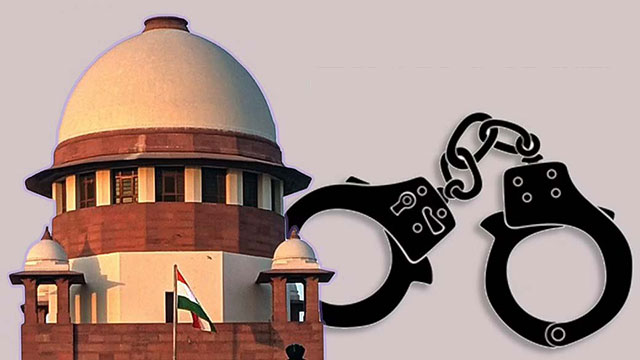Dr. Veda Pratap Vaidik
The 152-year-old sedition law enacted by the then British regime was almost silenced. The Supreme Court has not yet declared the Colonial Act redundant, but before giving its final verdict the Apex Court wanted the Government of India to present their proposal for endurable modifications of the said Act by June 10 this year. In fact, we can surmise from the posture of the government that the Administration also tacitly acknowledged that Section 124 A of the Indian Penal Code (IPC) is iniquitous, archaic and incongruous in a democracy. If the intent of the government was to continue with the Act the Apex court would have declared it null and void.
For the time being, the court has issued a direction to suspend this law till the matter is settled. The British rulers drafted and implemented this Act three years after the freedom struggle of 1857. This law detailed in Section 124A of the IPC says that “a person commits the crime of sedition, if he/she brings or attempts to bring in hatred or contempt, or excites or attempts to excite disaffection towards, the government established by law in India. It can be by words, either spoken or written, or by signs, or by visible representation, or otherwise.” Under this Act arrest can be affected immediately and the accused could be detained indefinitely without granting bail. The accused charged under sedition could also be sentenced to life, depending on the gravity of the charges.
The British regime had used this draconian Act against our freedom fighters like Bhagat Singh, Mahatma Gandhi, Bal Gangadhar Tilak, Sardar Vallabhbhai Patel, and Jawaharlal Nehru and locked them in jail for fighting against British rule. It is dismal; the same colonial law is enforced on charges of sedition against citizens who dare to oppose, criticize or challenge the rulers of the day in our Independent India even after 75 years of freedom. The law was enforced with more vigor during Indira Gandhi’s time. Under the law anyone can be imprisoned indefinitely without a warrant from the court of law. Hundreds of people were arrested, charged with sedition, from time to time by the governments in power.
The respective governments use 124 A to quell or control any dissenting voice or criticism. In a democracy like ours can criticizing or condemning an elected Prime Minister or Chief Minister be construed as sedition? The leaders taking out peaceful processions or agitations against certain policies and decisions of the government were booked under this Act on charges of sedition and locked them in jail. Noted journalists who were critical of the administration like late Vinod Dua, Siddiq Kappan and Aman Chopra are victims of this regressive Act.
Three Kashmiri students were jailed in Agra under this Act for congratulating the Pakistan cricket team via WhatsApp on their victory against India. Disha Ravi, 21-year-old student activist from Bengaluru, was arrested and remanded to police custody by a Delhi Court under the same Act for allegedly being involved in sharing a “toolkit” on social media related to the farmers’ protest.
You may disagree with the activities of many of those detained under this ‘sedition law’. But branding all of those booked under this Act anti-national cannot be justified.
This Act, for sure, deserves to be repealed because in most of such cases the prosecution fails to prove the charges and the accused is let free by the court. In the last 12 years, 13,306 people were tried for sedition and just 13 were convicted. This means the conviction rate is below one percent in cases booked under sedition charges. Such petrifying colonial laws should be totally repealed, because such acts stifle the tenets of democracy and defy civil liberty. There are multiple laws in operation to deal with charges relating to sedition. Even those Acts also should be imposed after proper scrutiny and with concern.

*Dr. Vaidik is a widely travelled scholar-journalist. He has visited more than 80 countries on diplomatic and educationalmissions. Dr. Vaidik has won more than a dozen National and International awards for academic and journalistic excellence. He has been a member of several Advisory Committees of Government of India.


